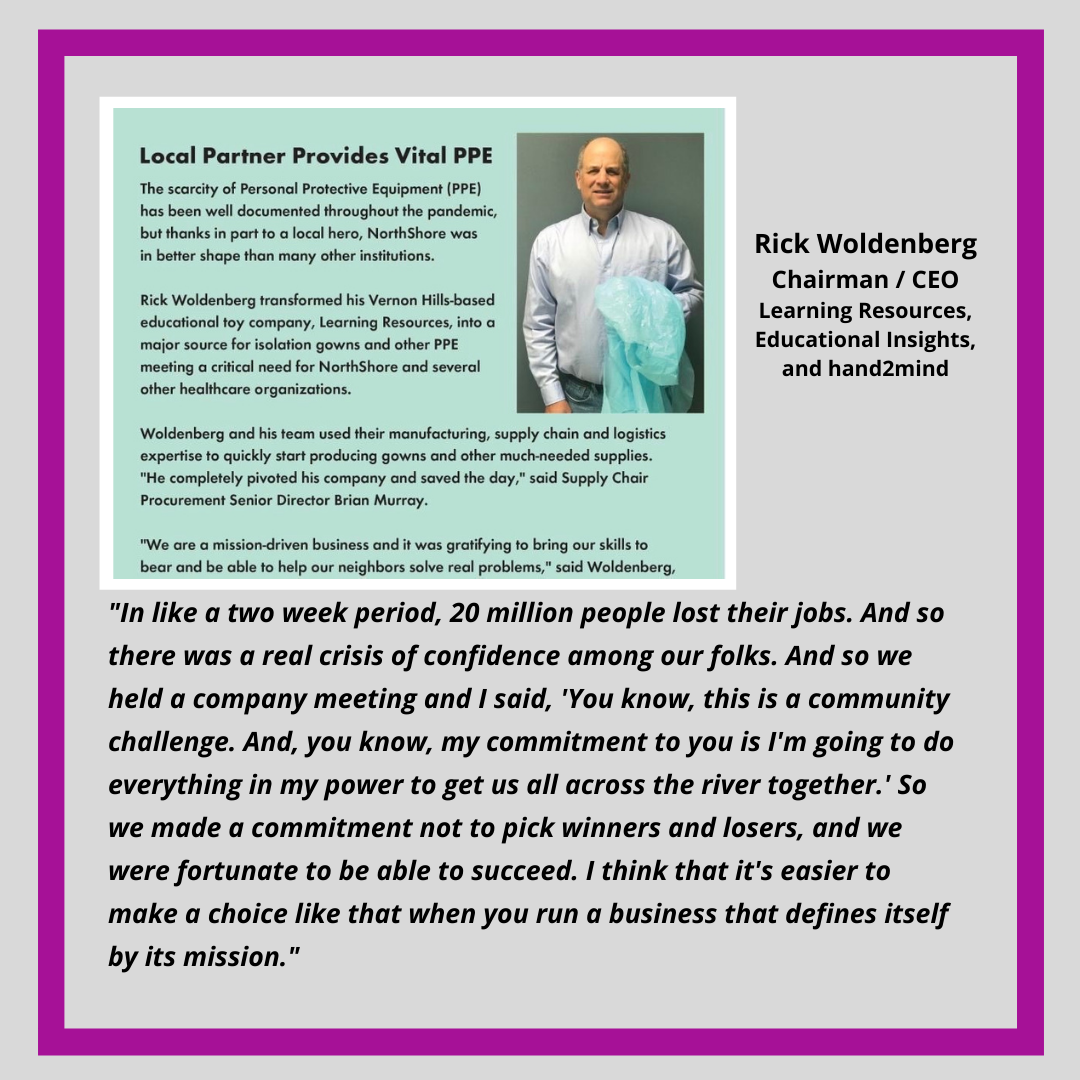Getting Unstuck #151/152: Why Do You Do What You Do?
It’s all about the mission….
It turned out that doing the right thing was the right thing to do. — Rick Woldenberg
Today’s guest
Here on Getting Unstuck, we’ve focused on companies and their leadership only when we’re aware that they’re doing something extraordinary in the area of change. There’s a fine line for us between being informative and being promotional. So we were pleased in this episode to talk with Rick Woldenberg about his experiences of successfully navigating COVID’s rough waters on behalf of his businesses, customers, and staff. Rick is the Chairman and CEO of three education-focused companies--Learning Resources, Educational Insights, and hand2mind. Trained as a lawyer, Rick uses his analytical skills to lead the family group of companies focused on the power of experiential learning.
Rick on why this conversation matters
“I think that the big idea coming out of the COVID crisis is that schools should invest in making homes more of a learning place. Kids learn better when there is more continuity between how they learn at school and how they learn at home. This means the home should include some of the same equipment.
In addition, parents are more engaged in their kids’ education than ever before. Schools can incorporate the home into the educational process more deeply and at a low cost and capitalize on parents’ willingness to be more involved in teaching their kids. Parents now accept this responsibility and have seen how important it is. It's not enough just to be a Homework Wrangler, there’s too much at stake.
There are also many at risk kids who really lack the basics at home. A small investment can make a HUGE difference in educational outcomes. While we don’t think today’s parents want to become the school, we think schools can colonize the home more and manufacture more hours of teaching in the week. I think this is a big opportunity for American schools.“
Some of Rick’s staff packing more than 600 backpacks of free materials they created for a local elementary school at the start of COVID.
How you can use this episode as PD
In his book, The Advantage, Patrick Lencioni makes the case that successful leaders focus on both “smart” and “healthy” attributes of running their businesses. “Smart” attributes include decisional matters around selling, marketing, product development, production etc. “Healthy” attributes center on the people doing the smart work by stressing collaboration, reducing unnecessary conflict, and building morale through people-focused policies.
As you listen to our conversation with Rick, note where he pays attention to both the smart and the healthy aspects of running his businesses.
Look at your own district, department, or classroom. Are you paying equal attention to the technical (smart) and human aspects of the work? Or do you have an imbalance? If the latter, what sincere new practices could you discuss with your team?
Rick mentions the phrase “mission driven” a few times during our conversation. Clearly it’s not a platitude; it’s something that drives his organization’s behavior. How mission driven is your district, school, or classroom? Does it drive your decisions and actions, or has it drifted to the background under the pressures of operating day-to-day?
Closing thought
I think that it's easier to make choices like we did when you run a business that defines itself by its mission. You know, we're able to be successful by caring about other people and trying to help them get a better life. We focus on children, and that's why we’re gathered together every day.
Connect with Rick
Company pages
https://www.learningresources.com
https://www.educationalinsights.com
Rick’s personal


